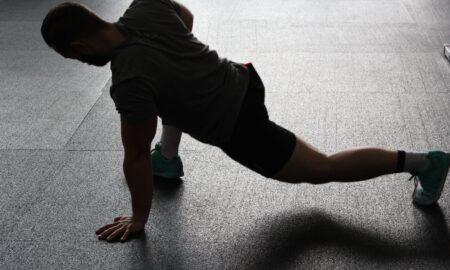Carnitine: Is it just for skinny guys in tank tops and those ’70s style running shorts your grandpa wears? ‘Fraid not. In fact, if you’re doing high-rep squats, carnitine may be up there with glutamine, whey protein and carbohydrates as an essential ingredient in your postworkout recovery cocktail. That’s right. Let me give you a brief rundown on the many aspects of carnitine that might be helpful to you.
Carnitine helps move long-chain fats into the powerhouses of the cell, the mitochondria. The fats are used as fuel by the cell; thus, carnitine acts as a kind of shuttle but is not itself directly involved in energy production. There are two forms of carnitine: L-carnitine and D-carnitine, but L-carnitine is the physiologically active form and is the type that you want. Avoid the D type.
According to noted researcher Jeff Volek, Ph.D., R.D., an assistant research professor at the University of Connecticut’Storrs, ‘There is little scientific evidence to support the use of carnitine supplementation as a fat burner for bodybuilders. However, according to our recent work, carnitine supplementation may help in another way by enhancing recovery from a workout as indicated by a reduction in several stress markers. How this affects performance is the next logical question.’
So what’s the new evidence? Were the effects seen only in rats? No. Perhaps untrained college students who spent mind-numbing hours listening to Pink? No. In fact, the study actually used guys who lifted weights. Not that there’s anything wrong with fat college slobs who’d rather do 12-ounce curls than preacher curls, but let’s face it: If you’re gonna do a study on a supplement, at least use guys (or girls) who are trained.
So here are the details. A group of scientists led by Volek took 10 weight-trained men and gave them either a placebo or L-carnitine L-tartrate (LCLT) at a two-grams-per-day dose for three weeks. After the three weeks they performed an exercise bout. The researchers took blood samples before and after the subjects did squats’five sets of 15 to 20 reps. For you science nerds, it was a double-blind, placebo-controlled crossover trial, which means all subjects underwent both the placebo and LCLT treatments. Thus, each subject served as his own control’and that’s a good thing. Several variables related to muscle damage and exercise stress were measured.
What did the researchers find? Well, first of all, taking the LCLT did in fact jack up blood carnitine levels. In fact, it more than doubled the amount. That’s good; at least we know the stuff gets past the gut. Various indices of skeletal muscle damage, such as creatine kinase, were lower in the LCLT group than in the placebo group. There was also much less free radical formation, which suggests less oxidative damage, in the LCLT group. But even more directly, muscle disruption, or damage, was much less, and muscle soreness was less in the LCLT group than in the placebo group for up to four days after exercise.
So carnitine may help you recover from an intense bout of weightlifting, but does that mean you end up with more muscle in the long run? Well, sorry to say, there’s no human data on that. But at least we get a Peeping Tom’s glimpse through interesting animal studies. In a study done in Hungary, scientists gave chickens four experimental diets that differed only in the amount of carnitine (50, 100 or 150 milligrams per kilogram of bodyweight).1,2 After two weeks on the carnitine-supplemented diet, the chickens were on average 9 percent heavier. Bodyfat levels were also lower by 18 percent. A dose of 50 to 150 milligrams of carnitine per kilogram of bodyweight daily made for superchickens.
Those findings have been shown in a veritable kingdom of animals, such as fish, foals and pigs. For instance, pigs given carnitine’250 to 1,000 milligrams per kilogram’had a greater average daily gain in bodyweight than those not given carnitine. The doses used in those studies were within the reasonable range of doses that humans can consume. A 50-milligram-per-kilogram-of-bodyweight dose would be 4.5 grams of carnitine for a 200-pound individual.
See, carnitine’s not just for skinny guys. You can find it in meat especially. Beef has about 300 times more carnitine than bread. For instance, a three-ounce steak has about 60 milligrams of carnitine. There’s no RDA for carnitine, but my guess is that it may be a great addition to a postworkout cocktail that also includes high-glycemic-index carbs, fast-absorbing protein, glutamine, creatine and essential amino acids.
References
Rabie, M.H., et al. (1997). Influence of dietary L-carnitine on performance and carcass quality of broiler chickens. Acta Biologica Hungarica. 48:241-252.
Rabie, M.H., and Szilagyi, M. (1998). Effects of L-carnitine supplementation of diets differing in energy levels on performance, abdominal fat content and yield and composition of edible meat of broilers. British Journal of Nutrition. 80:391-400.
Volek, J.S., et al. (2002). L-carnitine L-tartrate supplementation favorably affects markers of recovery from exercise stress. Am J Physiol. 282:E474-E482.
Editor’s note: Jose Antonio, Ph.D., CSCS, FACSM, has published work on skeletal-muscle physiology and sports nutrition. He is a co-editor of the authoritative text Sports Supplements, which describes the hows and whys of dietary supplements for athletes. Go to www.supplementbooks.com. IM




















You must be logged in to post a comment Login